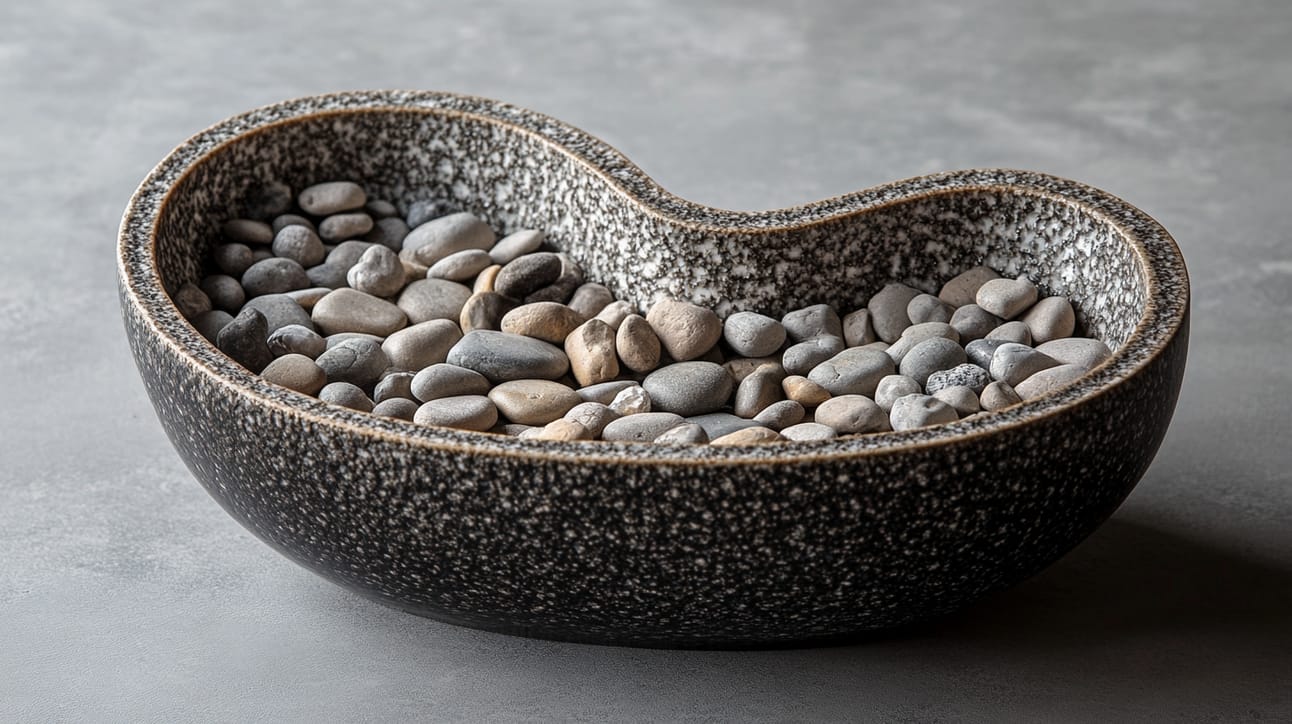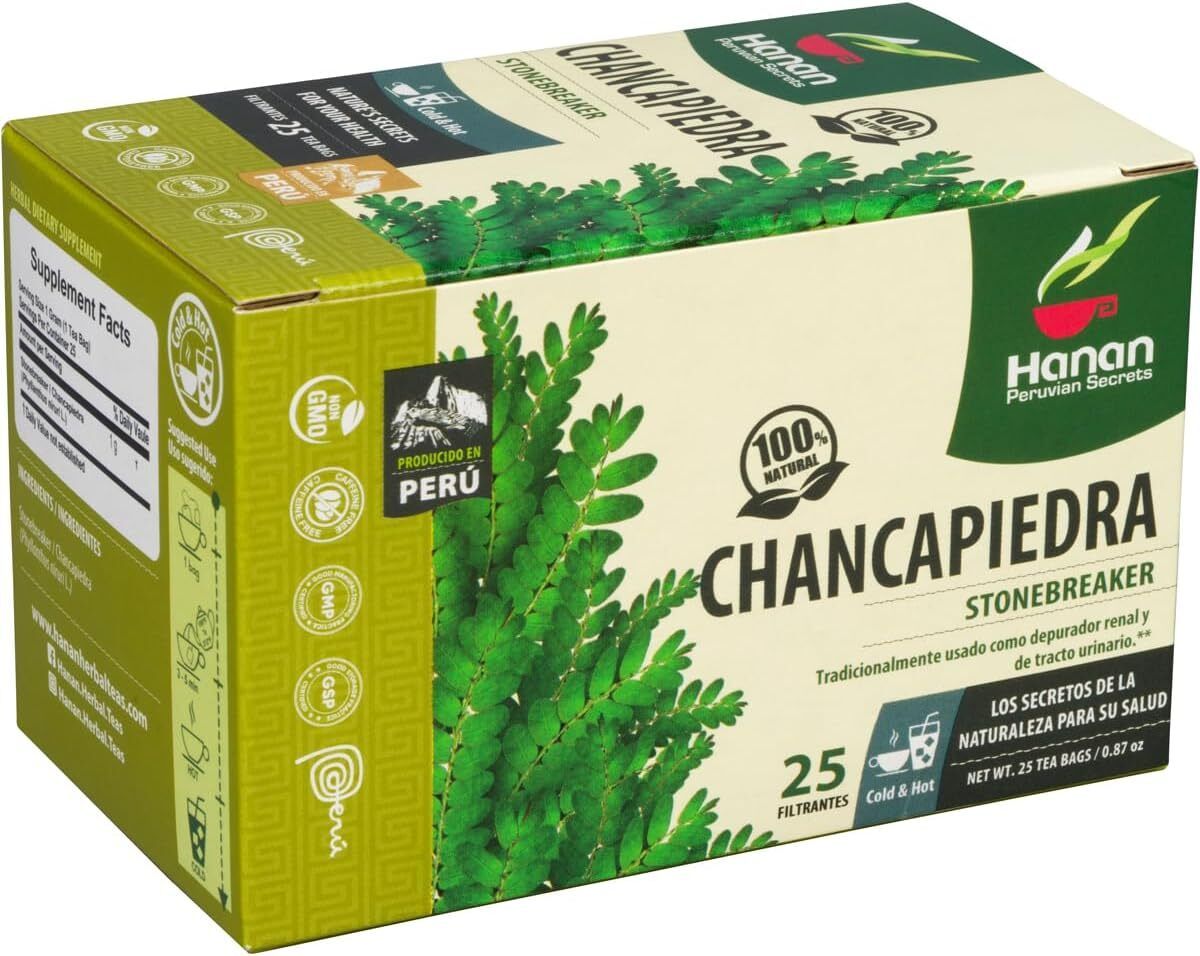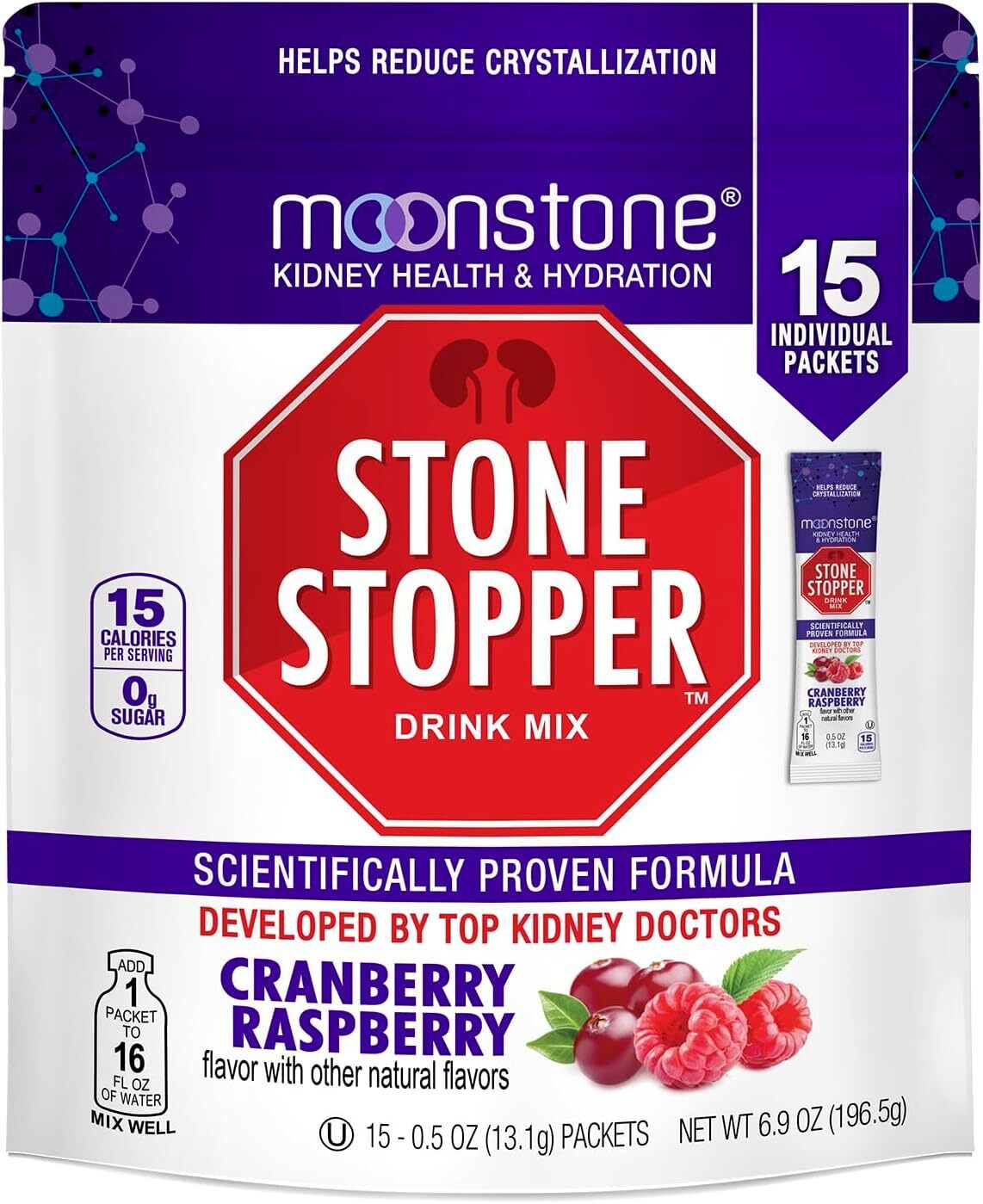- 40-something
- Posts
- Kidney stones 101: Types, causes, and rock solid solutions.
Kidney stones 101: Types, causes, and rock solid solutions.
Your quick guide to understanding kidney stone formations and how to treat them naturally using herbs and dietary and lifestyle changes.
We all know someone who’s had kidney stones, and it seems that if a person has endured one, it’s likely to become a recurring theme, unless dietary and lifestyle changes are adopted wholeheartedly. Apparently, it’s excruciatingly painful, and that alone should be all the motivation one needs to eat right, supplement, and get active as part of an ongoing preventative strategy.
What are kidney stones?
Kidney stones are hard deposits made of minerals and salts that form in the kidneys, and as they pass through the urinary tract, they cause debilitating pain and discomfort. However, there are several types of kidney stones, each with different causes. Understanding these types can help in both prevention and treatment, so keep reading as we’ll get to that in a bit…

Why do kidney stones form?
Kidney stones form when there’s an imbalance between the substances that prevent crystal formation and those that promote it. Factors like dehydration, dietary habits, genetic predisposition, and underlying health conditions can all contribute to this imbalance.
Types of stones, causes, and natural treatments:
1. Calcium oxalate stones
These are the most common type of kidney stones. They form when there’s a high concentration of calcium and oxalate in the urine and/or blood. Oxalate is a substance found in many foods, such as spinach, nuts, and chocolate. Dehydration, high intake of dietary oxalate, and certain medical conditions (like hyperparathyroidism) can increase the risk of calcium oxalate stones.
Natural treatments:
Hydration: Drinking plenty of water is crucial to dilute the substances that form stones. Aim for at least 8-10 glasses of water a day.
Dietary modifications: Reducing intake of oxalate-rich foods like spinach, beets, nuts, and chocolate can help. Incorporating calcium-rich foods (rather than supplements) into meals can bind oxalate in the intestines so they leave the body together, reducing the amount that enters the bloodstream and reaches the kidneys. It’s worth supplementing with vitamin K2, which directs calcium away from soft tissue and into the bones where it’s needed.
It’s also important to reduce consumption of salty and sugary foods and sodas as these can leech calcium from bones and affect calcium absorption into bones, causing the calcium to pass through the kidneys. For example: An hour after drinking Coca-Cola, phosphoric acid binds much-needed calcium, magnesium, and zinc, and drives these minerals away from bones to be excreted through urine.
Citrate: Consuming natural sources of citrate, such as lemon juice, can help prevent calcium from binding with oxalate, reducing the risk of stone formation. You can also try a citrate or citric acid supplement.
Chanca piedra: “The stone crusher” herb believed to inhibit the formation of calcium oxalate crystals by interfering with the processes that lead to crystal aggregation, growth, and attachment to the urinary tract lining. This makes it particularly effective in preventing and breaking down calcium oxalate stones.
2. Calcium phosphate stones
Less common than calcium oxalate stones, calcium phosphate stones form in alkaline urine, where the pH level is higher than normal. Conditions that cause the kidneys to excrete more phosphate, such as renal tubular acidosis, can lead to the formation of these stones.
Natural treatments:
Maintain proper pH balance: Consuming foods that help maintain an appropriate urine pH, such as fruits and vegetables, can prevent the formation of calcium phosphate stones.
Hydration: As with other types of stones, staying hydrated is key. It helps maintain a neutral or slightly acidic urine pH, which can prevent these stones from forming.
Limit sodium: Reducing salt intake can lower calcium levels in the urine, decreasing the risk of stone formation.
3. Uric acid stones
Uric acid stones form when the urine is too acidic. A diet high in purines—substances found in red meat, organ meats, and shellfish—can lead to higher production of uric acid. Dehydration and certain metabolic disorders, such as gout, also increase the risk. These stones are more common in people who are obese, have type 2 diabetes, or have chronic diarrhoea.
Natural treatments:
Alkalise the urine: Foods that alkalise the urine, like fruits (especially citrus fruits) and vegetables, can help dissolve uric acid stones. Lemon juice and apple cider vinegar are particularly effective.
Reduce purine intake: Limiting foods high in purines, such as red meat, organ meats, and certain types of fish, can reduce uric acid levels in the body.
Stay hydrated: Drinking enough water dilutes the uric acid concentration in the urine, lowering the risk of stone formation.
Chanca piedra: This “stone crusher” herb has mild diuretic properties, which help increase urine production and flush out smaller stones. Additionally, its potential to reduce uric acid levels in the blood and urine can make it useful in preventing and treating uric acid stones.

4. Struvite stones
Struvite stones are often associated with urinary tract infections (UTIs) caused by bacteria that produce ammonia. This ammonia can lead to the formation of struvite stones, which are made of magnesium, ammonium, and phosphate. These stones can grow quickly and become quite large, sometimes causing serious complications.
Natural treatments:
Cranberry juice: Though its effectiveness is debated, cranberry juice may help prevent urinary tract infections (UTIs) that lead to struvite stones. It can acidify the urine, making it less hospitable to the bacteria that cause these infections. Buy cranberry-raspberry stone stopper
Probiotics: Probiotics like Lactobacillus can help maintain a healthy balance of bacteria in the urinary tract, reducing the risk of infections that could lead to struvite stones.
Hydration: Adequate water intake is essential to flush out bacteria and prevent the formation of struvite stones.

5. Cystine stones
Cystine stones are rare and form in people with a hereditary disorder called cystinuria, where the kidneys excrete too much cystine, an amino acid, into the urine. Cystine does not dissolve well in urine, leading to stone formation.
Natural treatments:
Hydration: Drinking large amounts of water is especially important for those prone to cystine stones, as it dilutes the concentration of cystine in the urine. Aim for at least 3-4 litres a day.
Sodium restriction: Reducing salt intake can lower the amount of cystine in the urine, reducing the risk of stone formation.
Plant-based diet: A diet rich in fruits and vegetables can help maintain a healthy urine pH and reduce cystine stone formation.
Tips to prevent all types of kidney stones
To reduce the risk of kidney stones, it's important to stay hydrated, follow a balanced diet, and manage any underlying health conditions that might contribute to stone formation.
Regular exercise: Staying active helps maintain a healthy body weight and reduces the risk of stone formation, particularly uric acid stones.
Herbal remedies: Herbs like dandelion root, chanca piedra (“the stone crusher”) and nettle leaf are traditionally used to support kidney health, fragment stones, and promote urination, helping to flush out small stones and prevent new ones from forming.
Monitor urine pH: Keeping track of urine pH with test strips can help you make dietary adjustments as needed to prevent stone formation.
These natural treatments can be effective in managing and preventing kidney stones, especially if you're prone to recurrent stone formation. I don’t know about you, but I’d much rather avoid the severe and nauseating pain, costly doctors appointments, and inconvenience of surgeries or laser procedures. So, while there’s a lot in life we cannot control, we can – through our choices – take this matter into our own hands. You can do it!
Go on, commit and crush ‘em!!!
Umayya